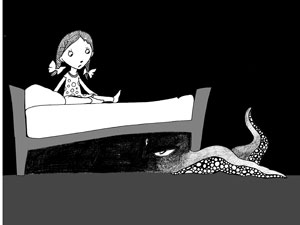There are a few moments in my life that I consider worthy of the label “life-changing.” Sure, I could recall the time I opened up my acceptance letter to this school; that was nice. Maybe I could share with you the day my first-born child entered this world; that might be considered kind of special. But I feel like it’s my duty to tell you about the day my life changed forever. The day I became a Guitar Hero.
My brother, the ultimate video game nerd, informed me one fateful day in the year of our Lord, 2005, that a revolutionary game had been released. A Playstation game that dwarfed all others. “Blasphemy!” I said. Surely there is no greater game than Katamari Damacy. Oh how na’ve I was. Kevin, my brother, described to me what was, essentially, “Dance Dance Revolution” with a guitar theme.How much more lame could that possibly sound? I would rather pretend to be a microscopic alien prince rolling over humans, cities and weather patterns.
Kevin and I thought it over and decided to buy the game that we were positive would be a waste of $70. “Guitar Hero” came with a controller shaped like a guitar, complete with whammy bar and stick-on decals. We popped the disc in and were immediately bombarded with images of Gibson guitars and stacks of Marshall 150-watt amps. Pure rock fury spilled from the Dolby 5.1 Surround speakers. The whole apartment shook. I thought maybe I had judged “Guitar Hero” too quickly.
Sure enough, we bought the game at 3 p.m. and stopped playing at 7 p.m. the next day. We barely passed the halfway point. Never, in the entirety of video game history, had one game hypnotized its players quite like “Guitar Hero” had just done to me. Maybe the game was great because of its song selections: a perfect blend of old and new, light and heavy, famous and obscure, Franz Ferdinand and Pantera. The game had astounding graphics, characters with personality, venues worthy of any rock fest and more replay value than a Halle Berry sex scene.
But what separates “Guitar Hero” from the rest is its attitude. When my brother and I played on that fateful night last year, we cranked the sound system to its max, completely disregarding neighboring apartments and their expectations of peace and quiet. During “Godzilla” by Blue Oyster Cult, we literally heard the old woman downstairs banging on her ceiling with a broomstick, which is old-lady-speak for “turn that down.”
I knew at that moment this game was special.
When I play “Guitar Hero,” I become the rock star I always wanted to be.
I happen to play guitar in real life as well, and while I might be good enough to carry out a couple of cover songs, I really don’t have the creativity or flair to vault myself into rock stardom. That’s where “Guitar Hero” offers me an escape into a world where I control the audience with my shredding prowess, a world where I care about nothing but rocking the f– out.
If you have ever felt like me, like you needed a superstar fantasy fulfilled, or if you just need an excuse to go nuts and rock out, I would strongly encourage you to check this game out. Even if rock isn’t your thing the game still attracts all different types of musical tastes because of its spirit and energy. Oh and by the way, “Guitar Hero 2,” a bigger, badder, better version of the original, will be released Nov. 7. I suggest you pick that one up, too.
Tim is a sophomore in Arts & Sciences. He can be reached via e-mail at [email protected].
 Matt Rubin
Matt Rubin Matt Rubin
Matt Rubin